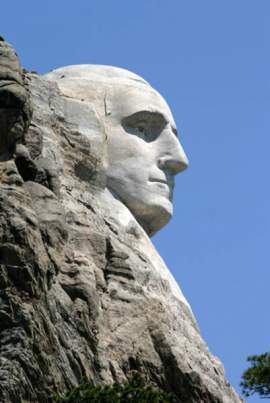
Federalism: Role on State Powers

Popular In Constitution
Purpose Of Lifetime Appointment And Pros And Cons Enumerated Powers Bicameral Legislature Background Article 3 Of The Constitution We The People 1st Amendment Who Wrote The Constitution Judicial Review Equal Protection Clause 5th Amendment 10th Amendment Three Fifths Compromise
Federalism was a political ideal that was used to explain the system by which the Government is separated into a central governing body as well as various State powers in accordance with the United States Constitution. Over the years, federalism has had its shifts in terms of the focus of power, as certain eras called for an increase in central governing power, while earlier events such as the aftereffects of "Shays' Rebellion" led people to demand more State power in connection to the Federal Government. This rebellion stated apparent deficiencies within the central government.
Therefore, the United States Government, with its foundation within that of federalism, operates by power being shared between states as well as the Federal Government. An example would be that, despite individual State law, an individual may appeal to Federal courts for assistance.
The United States Constitution sets forth the exclusive powers of both the national Government as well as State governments in addition to their combined shared powers. These powers were set forth for the express use of the national Government alone to include the following specifications: It is responsible for the creation of currency, declaring of war, establishment of the military, entrance into treaties with foreign governments, regulation of State and international trade and commerce, establishment of post offices as well as issuing of stamps, and the creation of laws to ensure the enforcement of the United States Constitution.
In order to be more specific, the Federal Government, though adhering in accordance to the Constitution, may have interpretations ascertained so broadly so as to extend their power very closely to that of the State. For example, Congress possesses vast financial authority, such as the jurisdiction over taxes and spending, in order to compensate for debts as well as the protection and welfare of the United States population. In addition, it possesses authority over citizenship with a broad reach encompassing it. The Federal Government essentially provides the definition by which individuals may pursue citizenship.
In reference to State power, another list of specifications exists. States are solely responsible for the creation of their local governments, issuing of licenses, regulation of intrastate commerce, conducting of elections, ratification of Constitutional Amendments, ensuring of public health and safety, as well as is connected to the institution on laws on legal drinking ages, for instance. Authority that both State and national governments share include: establishment of courts, creation and collection of taxes, construction of highways, creation and enforcement of law, chartering of banks and companies, and the use of money for the good of all people. Other examples of state power include that of "police power". This is due to the fact that there is no mention of such authoritative power within the United States Constitution. Thus, we may assume its uniqueness to that of State power alone.
As we have seen, federalism has instituted a way in which states may acquire some basis of authority in relation to the Government, the most recent form being that which had emphasized "states' rights" as set forth by Reagan and taken in by the latest Bush in office, that which was called "New Federalism".
NEXT: What Is The Commerce Clause





















